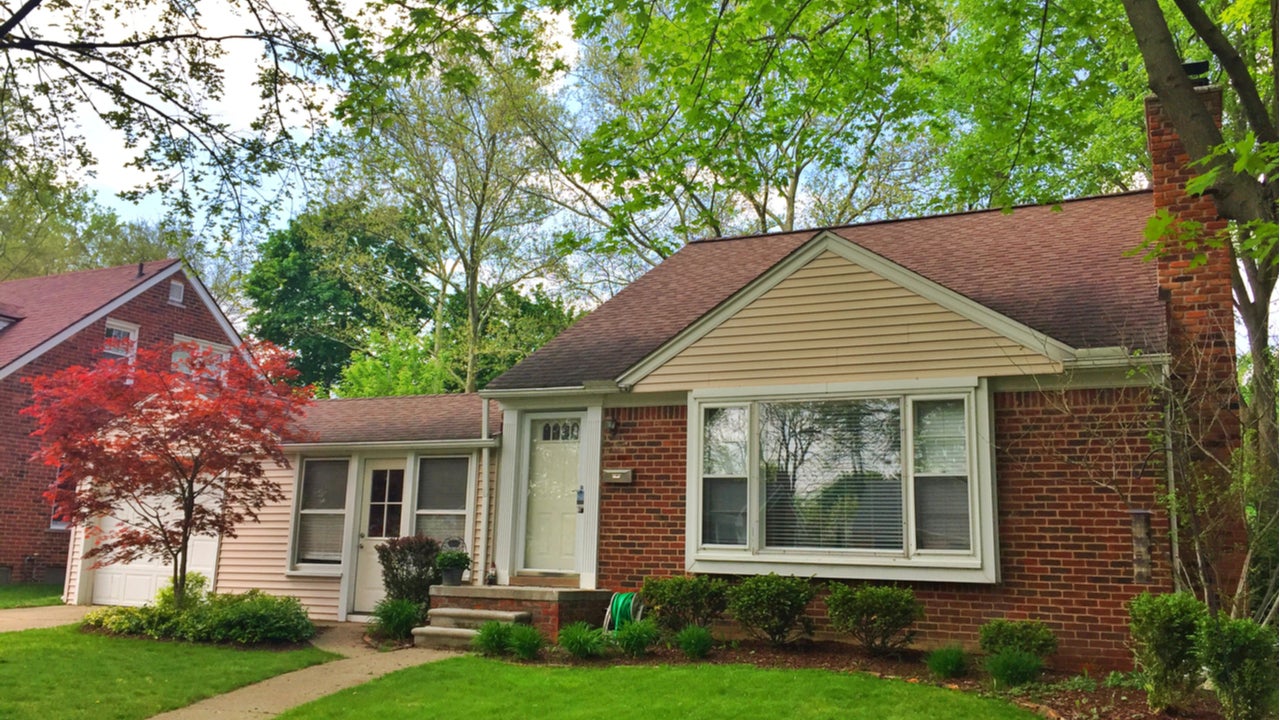Reverse mortgage scams: What they are and how to avoid them




Key takeaways
- Not all reverse mortgages are scams, but people exploring them should be extremely wary.
- Many reverse mortgage scams — carried out by unscrupulous parties from financial advisors to contractors — can con seniors out of their home equity.
- Beware of reverse mortgage lenders who offer you “free money” or are unable to clearly explain exactly how the loan will work.
Reverse mortgages can be helpful for older homeowners who have significant equity in their homes and want to convert it into supplemental income. That said, bad actors sometimes target seniors with misleading claims about how a reverse mortgage works. Before you take out this type of loan, here’s what you need to know, including some of the most common reverse mortgage scams to avoid.
Are reverse mortgages scams?
Not all reverse mortgages are scams, but some can be. To help you spot a scam and steer clear of reverse mortgage fraud, it’s helpful to understand how these loan products work and know what red flags to watch out for.
Unlike a mortgage, where you take out a loan and gradually pay it back, a reverse mortgage — as the name implies — works in the opposite way. Your mortgage lender makes loan payments to you, based on a percentage of the value of your home, either in a lump sum, monthly installments or a line of credit (or a combination of these options). Instead of paying down a loan, your debt grows, and you don’t pay it back until you sell your home, move out of it or pass away.
To a large extent, reverse mortgage scams hinge not on the actual loan product but on the lender and other professionals involved in the process.
If you think you’ve been a victim of a reverse mortgage scam, file a complaint with the Federal Trade Commission on its reporting website or by calling 1-877-FTC-HELP. You can also file complaints with your local FBI field office, your state Attorney General’s office or your state’s banking regulatory authority.
Here’s a closer look at how reverse mortgages work:
- Homeowners who have substantial equity borrow against that equity. The most common type is called a home equity conversion mortgage (HECM).
- The lender provides either a lump sum payout, monthly payments for a fixed period or a line of credit that can be accessed until the funds have run out. It’s also possible to receive a combination of these.
- You keep the title to the home and are able to continue living there.
- No payments are required on the reverse mortgage until you move out of or sell the home.
- If you pass away, your heirs can sell the home and use the proceeds to repay the reverse mortgage.
Reverse mortgage scams: Red flags to watch for
Some reverse mortgages are legit, but how do you know when you’re faced with a ripoff? Here are some signs of a potential reverse mortgage scam to look out for:
- The scammer sends you an unsolicited offer.
- The scammer tells you it’s free money.
- The scammer can’t clearly explain the loan or how it will work.
- The scammer says they’re the only lender or salesperson you should talk to.
- The scammer tries to charge you upfront fees, potentially even just for getting information.
- The scammer says a reverse mortgage is the solution to all of your financial problems.
- The scammer tries to sell you a financial product.
- The scammer is pushy.
- The scammer tries to send you payments for a home you didn’t buy.
Ultimately, if you weren’t already looking into reverse mortgages, be very wary of anyone who approaches you and suggests this mortgage option.
Common reverse mortgage scams
Because reverse mortgages can be a ready source of cash, fraudsters might encourage seniors to apply by making misleading claims or committing outright fraud. They then pocket some or all of the money from the house’s liquidated equity.
Check out the following examples of pitches for these unsavory lending situations so you know when reverse mortgages are scams.
‘You can delay Social Security’
How it works: A lending pro, financial advisor or other self-professed expert tells a homeowner that they can take out a reverse mortgage at 62 to get an income stream now and delay taking Social Security until age 70.
Why it’s bad: Reverse mortgages usually cost more — from closing costs to associated fees — than the increase in your Social Security check if you wait until age 70, according to the Consumer Financial Protection Bureau. What’s more, you’ll have dumped the equity in your house, which limits your financial options moving forward.
‘You can buy a new home with no money down’
How it works: Be wary if you’re approached with a specific potential property to purchase. Many reverse mortgage scams center around con artists — often with the help of straw buyers — purchasing a distressed or abandoned property, then recruiting seniors to “purchase” the low-cost home by transferring the deed. They say you won’t have to exchange any money, a surefire sign that something’s fishy.
Why it’s bad: In this reverse mortgage fraud situation, the scammer usually “helps” the senior get a loan with a lump-sum payment. Often, the scammer doesn’t actually fix up the new home: Things might look fine, but the senior finds serious issues upon moving in. Just as they’re discovering the deeper problems, the scammer vanishes with the lump sum.
‘You can get free income’
How it works: An unsavory character tells a senior that a reverse mortgage gives them a free, no-strings-attached way to get an income stream.
Why it’s bad: Anyone who tells you that a reverse mortgage is free income is lying. This money isn’t free. Any money you get goes toward the balance of your loan payment. You’ll either need to pay that off when you move or, if you pass away, your family will need to settle the debt with your lender. Plus, reverse mortgages usually come with fees.
‘You can trust us’
How it works: Some reverse mortgage lenders hire celebrity spokespeople to lend credibility to their advertisements. But are reverse mortgages legitimate just because a household name is behind them? Not necessarily.
Why it’s bad: While the product the spokesperson is touting could be legitimate — and you might even like or trust the celebrity’s claims — be sure to do your homework before committing to an offer.
‘You can do this without involving your spouse’
How it works: Scammers tell seniors they can get a reverse mortgage as the only borrower. They say the benefit is that you won’t have to involve your partner, troubling them with paperwork or meetings.
Why it’s bad: Even if the reverse mortgage is legitimate, if you pass away before your spouse, the loan becomes due. At that point, your partner could be forced to sell the house to repay the reverse mortgage.
‘All you need to do is sign here’
How it works: Some scammers could ask you to sign documents that have blank fields. Never sign documents with blanks, even if the other party claims they’ll fill them in later on.
Why it’s bad: The scammers could fill in anything in those blanks, allowing them to commit reverse mortgage fraud, such as outright transferring ownership of your home to them without giving you a cent.
‘You can make home improvements’
How it works: Scamming financial professionals aren’t the only ones behind predatory reverse mortgages. Contractors and home improvement pros can also be in play, suggesting a reverse mortgage as a payment method for work they claim your home needs.
Why it’s bad: If you want to use your equity in your house for a remodel or addition, other options — like a home equity loan or home equity line of credit (HELOC) — can give you a much lower-risk path forward. Plus, these options usually cost less than reverse mortgages.
‘You can invest in this money-maker’
How it works: In this scenario, a scammer tries to get you to use money from a reverse mortgage for a “lucrative opportunity,” such as an annuity, life insurance policy or stocks.
Why it’s bad: Purchasing these products is usually not the smartest financial move, especially if you need the funds for other purposes, like healthcare costs. Remember: You are never required to purchase any sort of financial product, or invest in anything, to qualify for a reverse mortgage.
‘You won’t lose your house’
How it works: If you’re struggling to pay your mortgage, fraudsters might seem like they’re offering you a great alternative with a reverse mortgage. This loan product can feel like a welcome solution if you’re facing foreclosure.
Why it’s bad: Before you commit to a reverse mortgage, reach out to your mortgage lender. Many offer loan modifications when homeowners struggle to make their payments. This allows you to stay in your house without dumping your equity in it.
How to avoid reverse mortgage scams
Here are a few steps you can take to help being scammed:
- If you’re interested in a reverse mortgage, consult with your current lender or a trusted financial advisor first.
- Before taking out a reverse mortgage, speak with a U.S. Department of Housing and Urban Development (HUD)-certified housing counselor. Counseling might be at minimal cost, on a sliding scale or even free based on your income.
- Shop around for a reputable lender. Often scammers will try to pressure you into believing they are the best or only lender for your needs. It’s best to consider multiple lenders to compare deal terms before you commit to anything.
- Check with the Better Business Bureau for possible complaints about any lender you’re considering.
Bottom line
For older homeowners who have significant home equity, a reverse mortgage can be an appealing way to gain supplemental income. But before signing on to this type of loan, it’s important to take the time to engage in due diligence, including knowing the red flags for fraud and reviewing multiple options. If you have concerns, speak with a trusted financial advisor or a HUD-certified housing counselor before making any decisions.
Why we ask for feedback Your feedback helps us improve our content and services. It takes less than a minute to complete.
Your responses are anonymous and will only be used for improving our website.
You may also like

Reverse mortgage pros and cons

How do you pay back a reverse mortgage?


